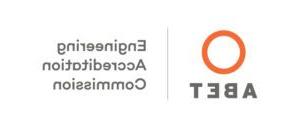Request Information
Ready to find out what MSU Denver can do for you? We’ve got you covered.
Do you want to be on the frontline of developing engineering solutions to problems involving the environment, such as pollution control, climate change, waste disposal and recycling?
As a graduate of MSU Denver’s new Environmental Engineering (EVE) bachelor’s degree program you will be prepared for a career planning and designing sustainable environmental systems as well as applying environmentally based engineering solutions that maximize quality of life by minimizing the impact of human activity on the environment.
The Environmental Engineering program is a multidisciplinary degree and has partnered with industries including the partnership between Hazen and Sawyer Company and MSU Denver in the field, which offers paid internship opportunities and allows students to develop professional skills necessary for their careers upon graduation. In August 2024, the Environmental Engineering program received ABET accreditation through Engineering Accreditation Commission (EAC). Industry partners include Metro Water Recovery, Hazen and Sawyer, Jacobs, Denver Water, AE2S, Stantec, and South Platte Renew.
Environmental Engineering students at MSU Denver gain critical advantages and such benefits include:
Ease of licensure: Through the Engineering core component, students will gain solid training for the Fundamental Engineering (FE) exam. Graduates are eligible to pursue EIT certification and PE (professional engineering) licenses, a vital credential in many careers.
Enhanced career mobility: Given MSU Denver’s EVE graduates meet global standards through ABET accreditation, students will enhance their international career prospects.
Opportunities for federal funding: Students gain access to scholarships and federal funding tied to accredited programs.
The mission of the Environmental Engineering program at MSU Denver is to provide comprehensive undergraduate education, through multidisciplinary interdepartmental collaboration, that prepares students to incorporate environmentally sustainable designs into natural and built environments.

The 84 credit hours of required core courses include classes such as:
Among the many courses offered to meet the 3-credit-hour electives requirement are:
Part of the Department of Engineering and Engineering Technology, the Environmental Engineering (EVE) program is housed in MSU Denver’s new Aerospace and Engineering Sciences Building (AES).
The AES building provides a space where the study of Electrical, Civil and Mechanical Engineering Technology, Industrial Design, Computer Engineering, Computer Science, Computer Information Systems, Aerospace Science and Aviation Technology are integrated through the Institute for Advanced Manufacturing Sciences.
Certain students will have the unique opportunity of working with York Space Systems’ production facilities and Mission Operations Center on the AES building’s enterprise floor.
The Engineering and Engineering Technology Department, which houses the Environmental Engineering (EVE) program, has many cooperative education partnerships and internships with local engineering firms through the Applied Learning Center, giving you real-world experience for a leg up in your career search after graduation.
You’ll also get to take advantage of the innovative, collaborative learning environment of MSU Denver’s new Aerospace and Engineering Sciences Building, where product development is integrated with design and research to give you ample opportunity to work with advanced technology in experiential laboratories.

The Bureau of Labor Statistics 2023 Occupational Outlook Handbook lists $100,090 as the median annual salary for environmental engineers, with an expected 6 percent job-growth rate. At just over $111,490, Colorado is among the 13 states with the highest annual mean wage in 2023 for Environmental Engineers.
Among the industries that employ Environmental Engineers are:
Graduates of MSU Denver’s Environmental Engineering program are employed as environmental engineers, water resources engineers, and consultants at the City and County of Denver, Michael Baker International, Denver Water, Hazen and Sawyer, Metro Water Recovery and other professional engineering firms.
The Environmental Engineering program at MSU Denver is accredited by the EAC Accreditation Commission of ABET, http://www.abet.org, under the General Criteria and Program Criteria for Environmental Engineering and Similarly Named Programs.
In addition to the B.S. in Environmental Engineering, the Engineering and Engineering Technology department also offers programs including:
Contact the Department of Engineering and Engineering Technology
Email or call with any questions regarding the Environmental Engineering Technology (EVE) program!